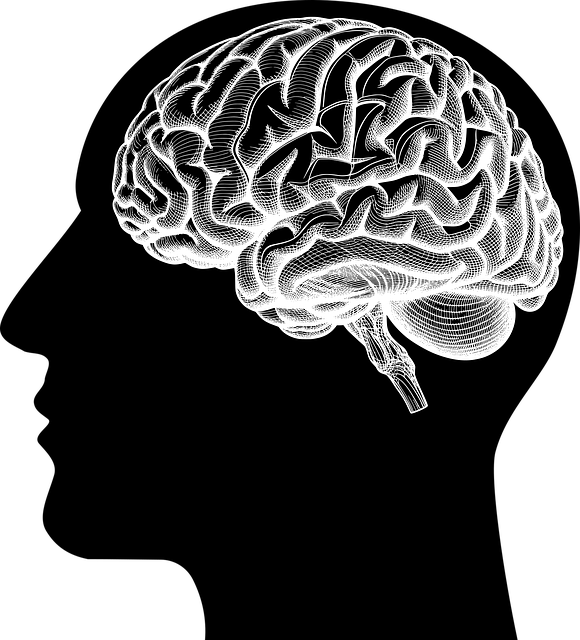Colorado Springs' unique blend of outdoor attractions and urban lifestyle presents mental health challenges, especially for women. Specialized mental wellness coaching programs address these issues through tailored interventions like cultural sensitivity, gender-specific groups, and trauma-informed care. These programs empower women by building resilience, educating the community, and reducing stigma. The curriculum integrates cognitive behavioral therapy, mindfulness practices, and resilience-building strategies, catering to diverse needs. Effective programs like Colorado Springs Womens Issues Therapy use evidence-based techniques, risk management, and continuous improvement measures to enhance client outcomes, focusing on mental health improvements and daily life impacts.
In Colorado Springs, the demand for specialized mental wellness coaching programs is growing, particularly among women facing unique challenges. This article explores the development of such programs, focusing on understanding the local need, identifying target groups like women with specific issues, and designing effective curricula integrating therapy techniques and support systems. We also discuss strategies for measuring success and continuous improvement, emphasizing the importance of tailored solutions for optimal outcomes in Colorado Springs womens issues therapy.
- Understanding the Need for Specialized Coaching Programs in Colorado Springs
- Identifying Target Groups: Women Facing Unique Challenges
- Designing Effective Mental Wellness Coaching Curricula
- Integrating Therapy Techniques and Support Systems
- Measuring Success and Continuous Improvement Strategies
Understanding the Need for Specialized Coaching Programs in Colorado Springs

In Colorado Springs, the need for specialized mental wellness coaching programs is increasingly evident, especially when addressing women’s specific issues and challenges. The city, with its unique blend of outdoor attractions and urban lifestyle, presents both opportunities and stressors that significantly impact mental health. Women often face distinct barriers to well-being, from work-life balance pressures to managing the demands of family and community responsibilities. These factors contribute to a rise in stress, anxiety, and depression, highlighting the crucial requirement for tailored coaching interventions.
Specialized programs cater to the cultural sensitivity required in mental healthcare practice, acknowledging the diverse backgrounds and experiences of women in Colorado Springs. By incorporating elements such as gender-specific groups and trauma-informed care, these initiatives foster a safe and supportive environment. Moreover, they focus on building resilience, a key aspect that equips individuals with coping strategies for long-term mental wellness. Public awareness campaigns development within these programs can further educate the community about mental health, encouraging open conversations and reducing stigma, thereby fostering an inclusive atmosphere where women feel empowered to seek support.
Identifying Target Groups: Women Facing Unique Challenges

In the context of mental wellness coaching programs development, identifying specific target groups is a strategic step to ensure tailored support. Among these groups, women facing unique challenges in Colorado Springs demand particular attention. Societal pressures, gender-specific issues, and historical inequalities often leave women struggling with anxiety, depression, and trauma, requiring specialized care.
The integration of conflict resolution techniques and self-care practices within coaching programs can empower women to navigate their struggles effectively. Additionally, offering trauma support services specifically designed for women creates a safe space where they can process past traumas and build resilience. These targeted interventions contribute to the holistic development of mental wellness coaching, addressing the unique needs of women in Colorado Springs.
Designing Effective Mental Wellness Coaching Curricula

When designing effective mental wellness coaching curricula for programs like Colorado Springs Womens Issues Therapy, the focus should be on creating structured yet flexible frameworks that cater to diverse needs. A well-rounded curriculum should integrate various therapeutic techniques, mindfulness practices, and resilience-building strategies. Each session can revolve around specific topics such as stress management, emotional intelligence, and confidence boosting, using interactive exercises and real-life scenarios to engage participants. By combining cognitive behavioral therapy elements with positive psychology, coaches can facilitate meaningful conversations that empower individuals to navigate life challenges more effectively.
The curriculum should also prioritize the teaching of mind over matter principles, encouraging clients to understand the profound impact their thoughts have on their emotional state and overall well-being. Through tailored coaching sessions, individuals learn to challenge negative thought patterns, cultivate self-compassion, and develop coping mechanisms that foster resilience. By combining theoretical knowledge with practical application, these programs aim to equip participants with the tools needed to enhance their mental wellness and lead more fulfilling lives.
Integrating Therapy Techniques and Support Systems

In developing mental wellness coaching programs, integrating effective therapy techniques and robust support systems is paramount. Colorado Springs womens issues therapy has shown that combining evidence-based practices with compassionate support can significantly enhance client outcomes. Techniques such as cognitive-behavioral therapy (CBT), mindfulness practices, and solution-focused approaches equip individuals with valuable tools to manage stress, improve mood regulation, and foster resilience. These therapeutic methods, when tailored to address specific mental health concerns, can lead to profound personal growth and improved quality of life.
Moreover, building supportive systems within coaching programs is crucial for risk management planning among mental health professionals. Effective risk assessment for mental health professionals guides the implementation of safety protocols, ensuring client well-being. By integrating these strategies, coaches create a comprehensive environment that not only supports mood management but also facilitates safe and effective healing processes. This holistic approach, combined with thorough risk assessment techniques, enhances the overall effectiveness of mental wellness coaching programs.
Measuring Success and Continuous Improvement Strategies

Measuring success in mental wellness coaching programs is a multifaceted process that goes beyond mere numbers. It involves assessing client satisfaction, tracking improvements in their mental health, and gauging the impact on their daily lives. This could be done through regular feedback sessions, pre-post assessments, or qualitative interviews where clients share their experiences and perceptions of change. By collecting such data, coaches can identify what’s working well and areas that need refinement, ensuring continuous improvement.
For instance, a Colorado Springs Womens Issues Therapy program might monitor reductions in anxiety levels, improvements in sleep quality, and increases in self-care practices as indicators of success. Incorporating these insights, the coaching strategies can evolve to better serve clients’ needs, fostering inner strength development and effective stress reduction methods over time.
In Colorado Springs, addressing women’s specific mental wellness needs is a critical step towards fostering a healthier community. By tailoring coaching programs to the unique challenges faced by women, we can empower them with essential coping strategies and resilience. Integrating therapy techniques, support systems, and continuous improvement measures ensures these programs are effective and adaptable. Moving forward, ongoing development and research will enhance our understanding of what works best, ultimately improving access to quality mental wellness coaching for women in Colorado Springs and beyond. This comprehensive approach to addressing women’s issues through therapy can revolutionize care, making it more inclusive and impactful.














